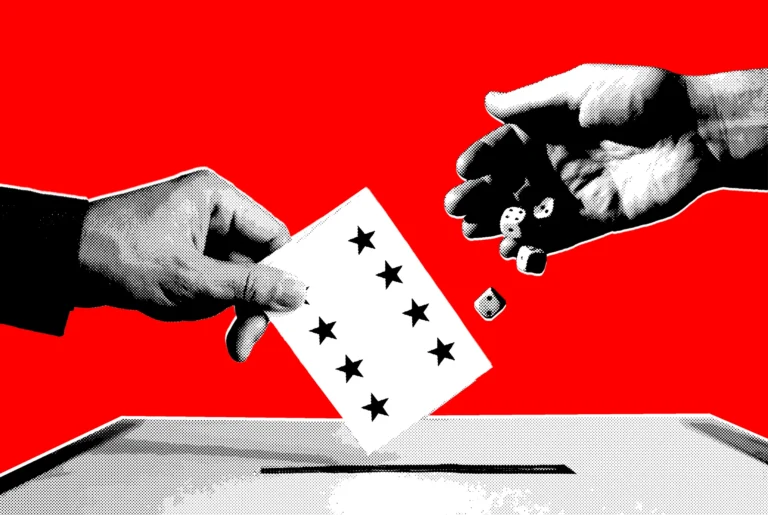With the U.S. presidential election around the corner, a surprising battle is brewing—not just in political circles, but in the world of crypto-powered prediction markets. Think of it as a mix of betting and forecasting, where people use platforms like Polymarket and Kalshi to predict real-world outcomes using cryptocurrencies.
The Buzz: Trump’s Declining Odds
Up until recently, Donald Trump’s chances of winning looked solid on these platforms, with odds that soared as high as 71.5% on Polymarket in mid-July. But here’s the twist: as election day approaches, those odds have taken a sharp nosedive, dropping over 10% to 59.1%. Kalshi, a newer prediction market that opened in October, mirrored this trend, showing Trump’s odds sliding from 65.2% to just 55% in a matter of days.
Why Are His Odds Dropping?
Two big factors could explain this dip:
- Polls and Early Voting: Analysts are glued to early voting results and last-minute opinion polls. One standout event? Vice President Kamala Harris’s rising support among Puerto Ricans in Florida, spurred by a remark at Trump’s rally.
- Critical Swing States: Key states like Wisconsin and Michigan are now leaning more favorably toward Harris, shaking up the predictions. Swing states are called that for a reason—they can shift the outcome dramatically.
The Mysterious ‘Whale’: Who Is Théo?
Among those betting big, one figure has caught everyone’s attention: a French trader known only as Théo. Imagine risking millions on your belief in a candidate’s victory. Théo isn’t your average gambler; he’s a former U.S.-based bank trader who invested $30 million on Trump, with the hope of turning it into $80 million if Trump wins.
But why would someone make such huge bets? Theories flew around—was Théo part of Trump’s campaign or a secret political player? In a recent interview, Théo pushed back against these ideas. He said, “I have absolutely no political agenda,” emphasizing that he was just making a strategic move based on his belief that polls undervalue Trump’s chances.
Why Is This Important for You?
Understanding prediction markets and the dynamics behind them can sharpen your sense of how financial markets and public sentiment mix. Here’s why you should care:
- Key Concept: Prediction Markets – These platforms are like digital crystal balls where participants bet money on outcomes. They’re built on the blockchain, providing transparency and real-time updates.
- The ‘Whale’ Effect – Big investors (or “whales”) can move the market significantly, just as Théo’s $30 million bet shows. This reveals how sentiment and deep pockets can shape odds—and market behavior.
- Economic and Political Insight – The dip in Trump’s odds ties into wider shifts in public opinion, the influence of key demographic groups, and last-minute campaign moments. It’s a practical lesson in how politics and finance are tightly interlinked.
Building on This Knowledge
Start by exploring how prediction markets work and their impact on trading strategies. They’re not just for politics—they also touch on sports, economic data, and global events. Dive into topics like crypto market trends, swing state significance, and the psychology behind large bets. Understanding these can set you apart in discussions about modern finance and politics, where predictions aren’t just guesses but calculated moves backed by money.
The takeaway? In the world of prediction markets, even a few days or a single bet can tip the scales dramatically, proving that finance and politics are not only connected—they’re in constant dialogue.



